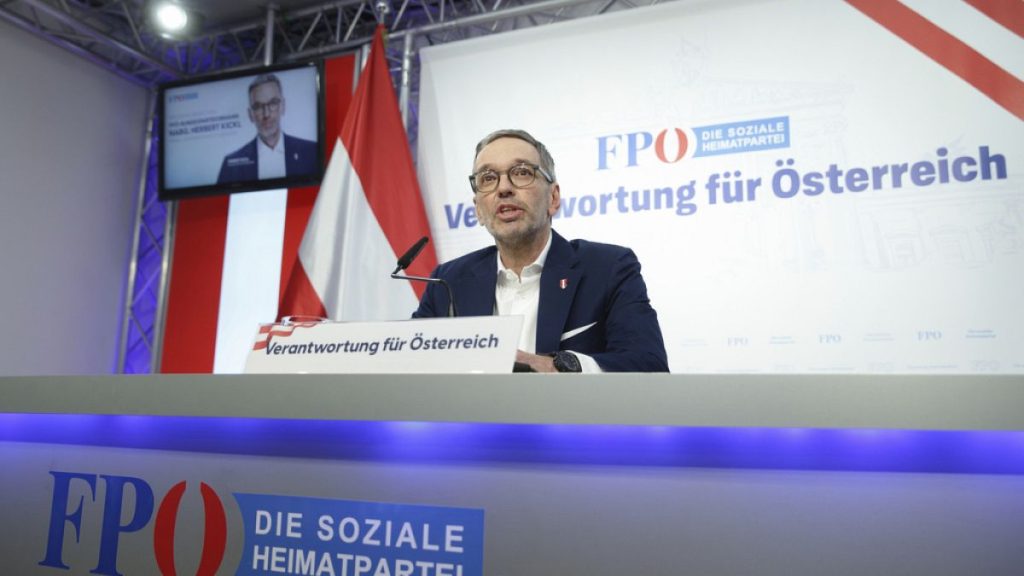The Austrian political landscape is currently navigating a complex and potentially volatile situation following the September parliamentary elections, which saw the far-right Freedom Party (FPÖ) emerge as the victor. Herbert Kickl, the head of the FPÖ, has now been officially tasked with forming a government, a development that has significant implications for the country’s future political direction. Kickl has extended an invitation to the conservative Austrian People’s Party (ÖVP) to engage in coalition talks, a move that could either lead to a stable government or further exacerbate the existing political stalemate.
The invitation to the ÖVP, while seemingly a gesture of cooperation, is laden with underlying tensions and challenges. The two parties, though sharing some ideological common ground, have a history of clashes and disagreements, particularly concerning Kickl’s leadership. The ÖVP previously refused to enter a coalition with the FPÖ under Kickl, a stance that led to the resignation of outgoing Chancellor Karl Nehammer, who initially held the mandate to form a government. Kickl’s invitation, therefore, represents a critical juncture in Austrian politics, demanding a delicate balancing act from both parties.
Kickl has emphasized the urgency of forming a government, highlighting the “lost” 100 days since the election results were announced. He has urged the ÖVP to approach the coalition talks with honesty and a willingness to compromise, warning that a failure to do so could lead to snap elections, a scenario that current polls suggest could further strengthen the FPÖ’s position. While Kickl has acknowledged that the success of the talks is not guaranteed, he has stressed the need for a swift and decisive “political firefighting operation” to address the current governmental impasse.
The ÖVP faces a difficult choice. Entering a coalition with the FPÖ under Kickl could stabilize the government and provide a clear path forward. However, such a partnership would also carry significant political risks, associating the ÖVP with a far-right party that has faced criticism for its controversial stances on immigration and other social issues. Rejecting Kickl’s invitation could lead to renewed political instability and the prospect of another election, potentially further empowering the FPÖ. The ÖVP’s decision will significantly impact the country’s political trajectory.
The potential coalition between the FPÖ and the ÖVP, while presenting a viable solution to the current political deadlock, is fraught with complexities and uncertainties. The two parties will need to navigate their historical differences and find common ground on key policy issues if they are to form a stable and functioning government. The success of these negotiations will depend on the willingness of both sides to compromise and to prioritize the country’s stability over partisan interests.
The coming weeks will be crucial for Austrian politics. The outcome of the coalition talks will determine not only the composition of the next government but also the direction of the country’s political discourse and policy agenda. The stakes are high, and the decisions made by the FPÖ and the ÖVP will have profound and lasting consequences for Austria’s future. The world will be watching closely as these negotiations unfold, observing the delicate dance of power and compromise that will shape the nation’s destiny.














